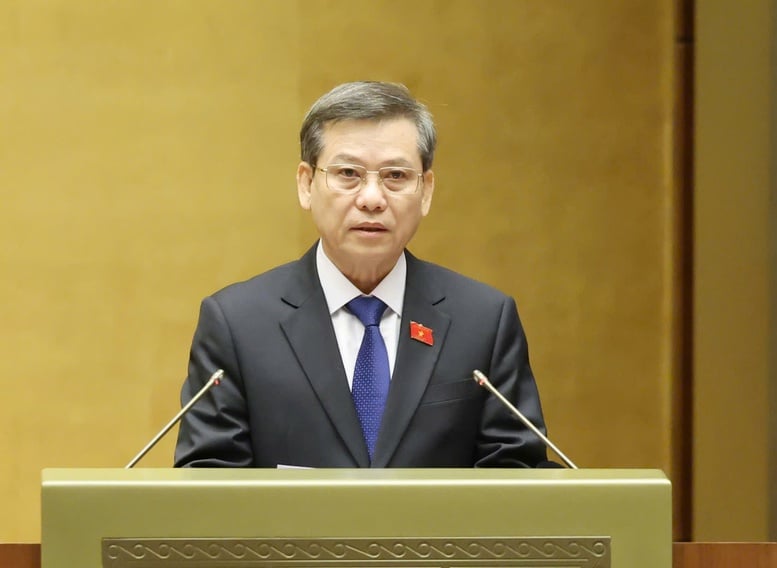
Chief Justice of the Supreme People's Court Le Minh Tri presents the Draft Law on Bankruptcy (amended) - Photo: VGP/Nhat Bac
Focus on removing bottlenecks
Presenting the Proposal on the draft law, Chief Justice of the Supreme People's Court Le Minh Tri said that the Bankruptcy Law (amended) was developed and promulgated to amend and supplement provisions that are still problematic and inadequate in practice; remove bottlenecks in resolving bankruptcy cases; create a favorable legal corridor for enterprises and cooperatives to restore production and business activities; declare bankruptcy and promptly liquidate enterprises and cooperatives that are no longer able to recover, free up resources, support production and business, promote the economy , build a healthy business environment; contribute to improving the investment and business environment and enhancing national competitiveness; protect the legitimate rights and interests of the parties, in accordance with international practices and Vietnam's conditions, contributing to bringing the country steadily into the "new era - the era of development and prosperity".
Specifically including: Building and perfecting procedures for business recovery of enterprises and cooperatives. Building simplified recovery procedures and simplified bankruptcy procedures for enterprises and cooperatives. Applying electronic transactions in resolving recovery and bankruptcy cases. Perfecting regulations on duties and powers of administrators, enterprises, asset managers and liquidators, people conducting recovery and bankruptcy procedures, and people participating in recovery and bankruptcy procedures. Perfecting the order and procedures for resolving bankruptcy cases to overcome difficulties and inadequacies and in accordance with international practices.
The draft law is built on the viewpoint: Ensuring the comprehensive and direct leadership of the Party in the work of law-making. Institutionalizing the guidelines, policies and strategies in the Party's resolutions and documents on economic development and judicial reform; innovating, arranging and streamlining the apparatus and innovating the work of law-making.
Ensure the constitutionality, legality, consistency and unity of the legal system; ensure compatibility with relevant international treaties to which Vietnam is a member; selectively refer to international experiences suitable to Vietnam's conditions.
Inheriting appropriate regulations, amending inappropriate regulations; adding new issues to overcome practical difficulties and shortcomings; ensuring the legitimate rights and interests of participants in rehabilitation and bankruptcy procedures. Ensuring the feasibility of the Bankruptcy Law (amended) in accordance with the country's socio-economic conditions and situation.
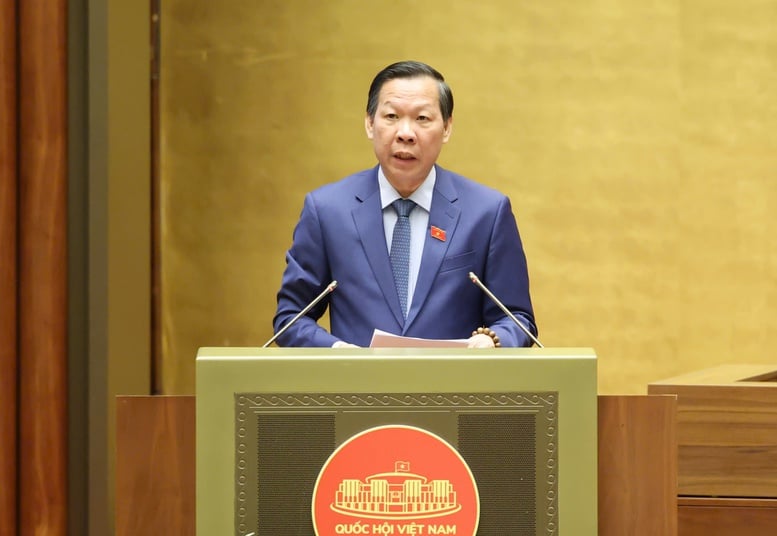
Chairman of the Economic and Financial Committee Phan Van Mai presents the Verification Report - Photo: VGP/Nhat Bac
Ensure feasibility in implementation
In reviewing the draft law, the Economic and Financial Committee (KT-TC) said that the draft Law dossier basically met the requirements and was qualified to be submitted to the National Assembly for consideration and comment. However, it is recommended that the Government direct relevant agencies to coordinate closely with the Supreme People's Court (the submitting agency) and the agency in charge of the review to provide timely comments during the process of reviewing and revising the draft Law and completing the draft Law dossier, especially for the contents assigned to the Government for detailed regulations in the draft Law to ensure feasibility and the best quality before submitting it to the National Assembly for consideration and approval at the 10th session.
Regarding the scope of regulation, the majority of members of the Economic and Financial Committee agreed with expanding the scope of regulation of the draft Law in the direction of building and perfecting the rehabilitation procedure as an independent procedure carried out before the bankruptcy procedure.
However, some opinions say that separating the rehabilitation procedure into an independent procedure to be carried out before the bankruptcy procedure is not suitable for practice, not feasible, and may lead to the abuse of State support policies during the rehabilitation phase, prolonging the time to resolve the bankruptcy case. Therefore, it is proposed to stipulate that the rehabilitation procedure is a step in the process of carrying out bankruptcy procedures.
Regarding the basic principles and policies of the State, the Economic and Financial Committee found that, based on the opinions of the National Assembly Standing Committee and the preliminary examination opinions, the draft Law has been accepted in the direction that the State has policies to support tax, credit, interest rates, finance, land and other support measures for enterprises and cooperatives facing difficulties in production and business.
Based on the State's ability to balance resources in each period, the Government builds specific mechanisms and policies to support enterprises and cooperatives. This regulation aims to restructure, restore or terminate production and business activities of enterprises and cooperatives in an orderly manner, contributing to improving the investment and business environment and making the economy healthier.
Regarding the concept of enterprises and cooperatives at risk of insolvency, some opinions say that 6 months is a reasonable period of time for enterprises and cooperatives to determine whether they have the funds to pay their debts due or not; before falling into insolvency, enterprises and cooperatives must self-determine their difficult situation and have time to proactively balance their finances before submitting a request to the court to apply rehabilitation or bankruptcy procedures.
However, some other opinions suggested studying the State Bank's regulations on debt classification for loans to adjust the concept of insolvency in the draft Law to be consistent and consistent.
Regarding the responsibility for submitting a request to apply bankruptcy procedures, the Economic and Financial Committee agrees to supplement the provisions in the draft Law on the responsibility of tax authorities and social insurance agencies in submitting a request to apply bankruptcy procedures to enterprises and cooperatives.
However, this is new content added after the 49th session of the National Assembly Standing Committee, therefore, it is necessary to continue to seek opinions from relevant agencies directly affected by this regulation to ensure feasibility during implementation.
Regarding the implementation provisions, the Economic and Financial Committee proposed to continue to comprehensively review other laws related to bankruptcy law to have a comprehensive amendment plan, ensuring the consistency and synchronization of the legal system.
Hai Lien
Source: https://baochinhphu.vn/thao-go-nhung-diem-nghen-trong-giai-quyet-vu-viec-pha-san-102251023101053582.htm



![[Photo] Prime Minister Pham Minh Chinh chairs meeting on railway projects](https://vphoto.vietnam.vn/thumb/1200x675/vietnam/resource/IMAGE/2025/10/23/1761206277171_dsc-9703-jpg.webp)




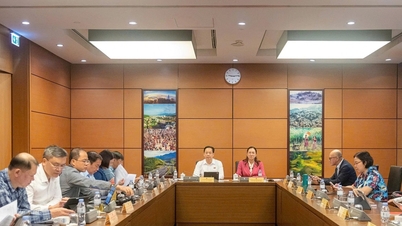

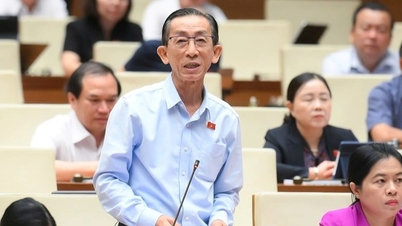



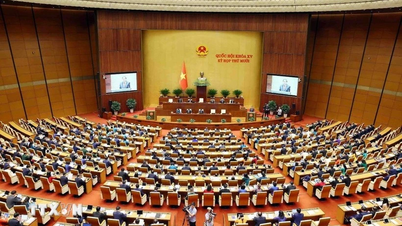

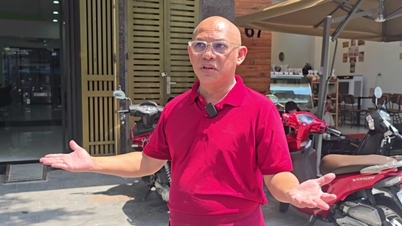







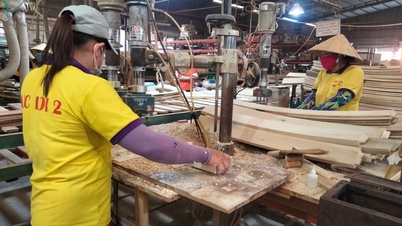






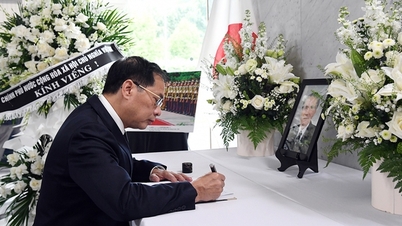


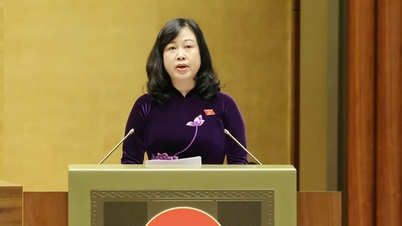




































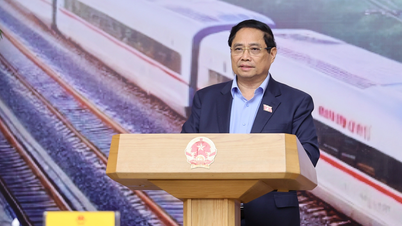













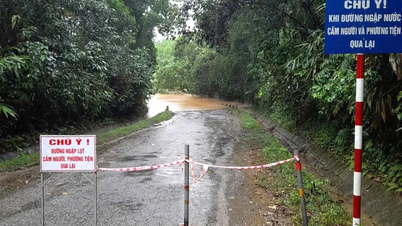



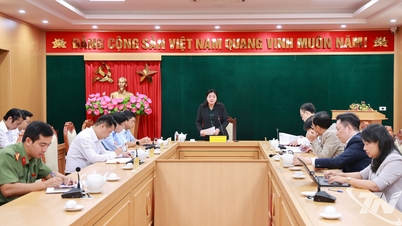




















Comment (0)